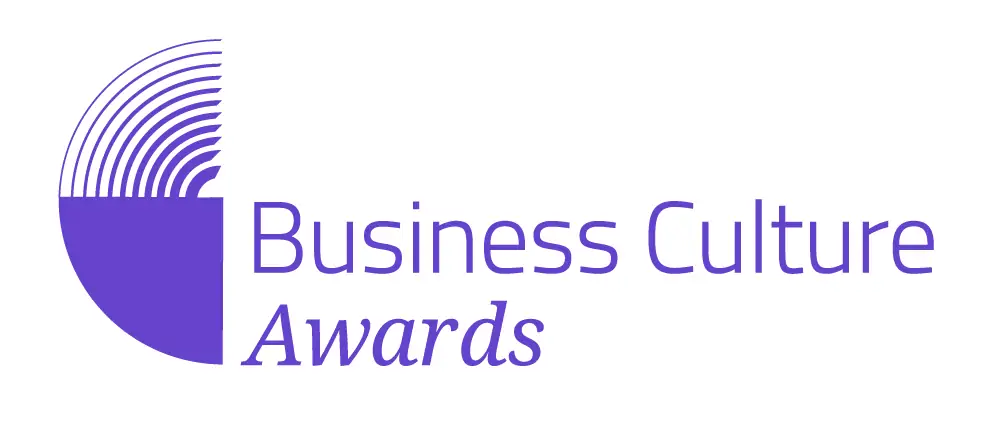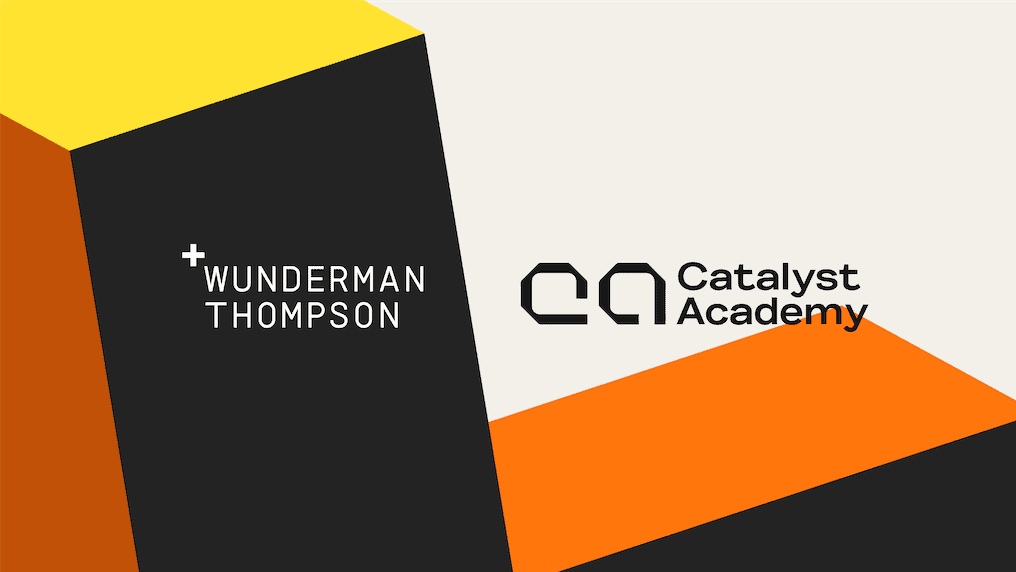Background
The advertising industry is not easily accessible, and often people do not know about opportunities within it. Those who are aware often come from privileged backgrounds with the ability to do unpaid or low-paid placements before qualifying for a full-time role. The challenge was two-fold: raise awareness of what Wunderman Thompson can offer and ensure the reach was inclusive. Focus areas were 1. Diverse representation (the advertising workforce is 90% white); 2. Disability (visible or not), with 9% represented in the advertising workforce, despite 20% of the working-age population identifying as disabled; and lastly, 3. Gender, aiming to have an even split (or close to) and ensuring transparency regarding salary.
The Catalyst Academy was created as a programme where talent could get to know the industry and the company and ultimately to develop future marketeers for the sector. Designed to be the opposite of a traditional graduate programme, the academy is rooted in the belief that a diverse process will deliver a diverse pool of candidates. By bringing in fresh talent and fresh perspectives, the company would also have the best chance of future proofing clients’ businesses.
Approach
The programme had support from both the EMEA & APAC CEO and the company’s Global Client Lead and the EMEA L&D Team started building in early 2020. Ensuring it was accessible was the most important part and many steps were taken to ensure everyone felt welcome. A Bias Awareness overview and Inclusive Hiring Principles were created to guide the hiring process.
(1) Online Application – This was open for 8 weeks and candidates were asked 6 key questions linked to their behaviours instead of sending a CV. All personal data was removed to eliminate the possibility of bias. The Academy was advertised across a range of platforms including The Other Box, Creative Equals, The Dots, Brixton Finishing School, Stonewall, WPP’s Roots Network, Camden’s secondary schools and non-graduate colleges, LinkedIn, Milkround, Glassdoor, and Drive Forward, to ensure it was accessible to all. Candidates were assessed using a matrix scoring across behaviours, technical ability, and storytelling. The top 30% were invited to the assessment round. In line with Inclusive Hiring Principals, applicants who stated they had a disability automatically progressed to the next stage.
(2) Video Profile Application – Applicants could submit a 90-second video answering a broad brief linked to Wunderman Thompson’s behaviours. Candidates were encouraged to be as creative as they liked and were not scored down for format. The top-scoring 10% were invited to the assessment stage.
(3) Assessment Centre – Volunteers within the business were invited to join the assessment panel. All had completed Allyship training; were IE&D Ambassadors within the business; and took part in a full briefing. The day was hosted via Microsoft Teams, with an opportunity for applicants to test their access the day before. They were introduced to the company; worked in small groups on a creative brief and had individual interviews. 11 top-scoring individuals from the Assessment Centre and overall process were offered a place, joining in Spring 2021. The 18-month Catalyst Academy programme commenced, including a series of four business rotations.
Outcome
The Catalyst Academy is seen as a great success throughout the business, with the initial pilot delivered in London, Munich, and Amsterdam, linking many EMEA capabilities. 10 of the 11 Catalysts are still with the company and, at time of writing, were due to graduate from the programme in September 2022. 72% had already secured permanent roles within the business at this time and many had multiple roles offered. Of the candidates originally hired, 42% were from Black, Asian, and ethnic minority backgrounds; 43% identify as female or non-binary; and 18% selected said they had a disability; aligning with the initial focus areas identified. There is more work to do as regards the % of candidates from lower socio-economic backgrounds and university-educated.
The business has benefited from the Catalysts, who have used their unique position to strengthen the network and break down silos. They have contributed to client success from day one, with fresh and diverse insights invaluable to companies such as HSBC, Essity, Bose, Nestle, and Aston Martin. The Catalysts have also made a great impact in raising awareness on several key topics, for example, collaboration with senior leaders on the company’s sustainability strategy. They have given positive feedback on their experience and have played a major role in setting the groundwork for the next cohort in 2023, when the project will expand to 40 Catalysts across EMEA and APAC.
In order to be set up for success from day one, Catalysts are given a competitive base salary, welcome bonus, 25 days annual leave, a discount on medical insurance, and a healthy pension contribution. They have access to many personal development opportunities and the opportunity to be part of employee resource groups, including Women’s Network, Unite, Roots, Wellbeing, and Green Team. The feedback from the business and commitment to grow the cohort by 300% is a testament to the success and positive impact the Academy has had.
View more Next Generation case studies here

